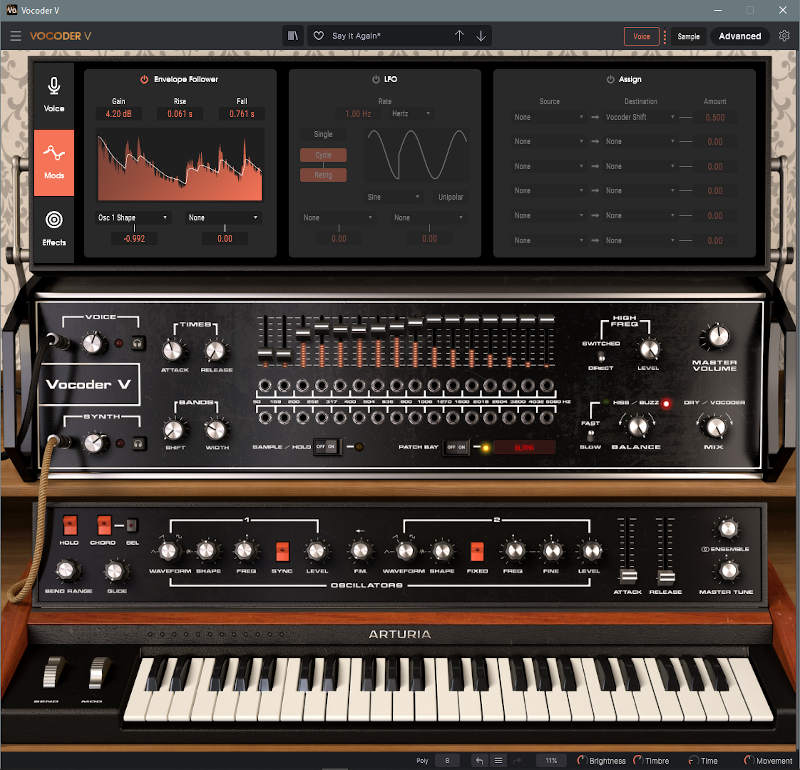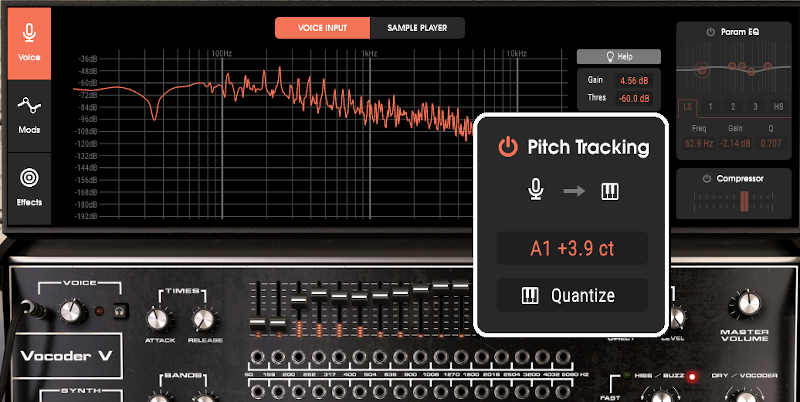Surprise! Vocoder V makes an excellent monophonic guitar synth
Arturia’s Vocoder V is indeed a cool vocoder, but it has a feature of special interest to guitarists: a voice-to-pitch converter, so that you can “sing” synth parts. The bad news: it’s not polyphonic. The good news: it tracks amazingly well (including pitch bend and vibrato), and the latency is not of any consequence. The better news: there’s an envelope follower that can apply to a ton of parameters, along with an effects section (11 effects, arranged as either three in series, or in parallel). The various vocoder tone-shaping options, like the per-band EQ and shift/width controls for the bands, are in play as well, and can also be controlled by modulation sources.

The synth you drive with the guitar has two oscillators, an unusual Shape control (that you can drive with the envelope follower or LFO, and you can even trigger chords from individual guitar notes. It really is quite versatile; I believe some of it is derived from Arturia’s Pigments synth. Note that when used with guitar, the pitch-to-synth process does produce a bit of a pop on attacks. There’s an easy fix: turn up the Attack Time control on the Vocoder just a bit to bypass the initial attack, and the response is much smoother.
To get into a full explanation of what all the controls can do would read more like a manual than an article. Besides, I’m still finding things out…like how setting a long Release time is a great fit with tapping. The addition of the effects is cool, and note that you can also quantize pitch if you don’t want Vocoder V to follow pitch bends or whammy bars.
Suffice it to say that if you have Vocoder V and play guitar, it’s well worth spending some time to find out what this combination can do. Vocoder V doesn’t function with all DAWs as a plug-in, because it has to be able to accept MIDI data as well as audio. However it also works in stand-alone mode, which is a lot of fun. I’ll be experimenting with virtual patch cord applications to see about sending its output to DAW track inputs.
I don’t know if this will become a go-to part of my sonic arsenal, because I can play keyboards anyway, so I don’t need to push guitars into being synthesizers. Still, playing around with Vocoder V has proven to me that you can get sounds out of the guitar/Vocoder V combination that you certainly can’t get out of guitar—and it’s a blast!
